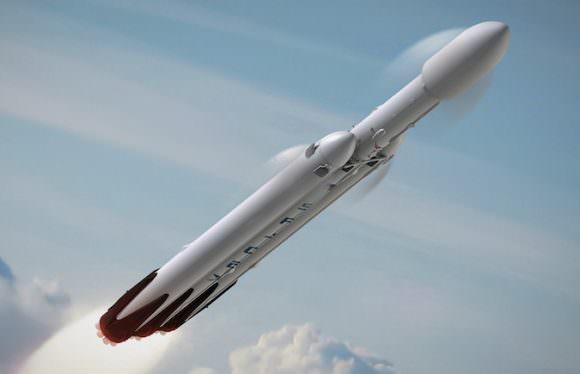If there were an Olympics for ambition, the Dutch-based non-profit organization Mars One would surely be on the podium.
If you haven’t heard of them, (and we expect you have,) they are the group that plans to send colonists to Mars on a one-way trip, starting in the year 2026. Only 24 colonists will be selected for the dubious distinction of dying on Mars, but that hasn’t stopped 200,000 people from 140 countries from signing up and going through the selection process.
There are 100 people who have made it through the selection process so far. Another five day testing phase will knock that number down to 40, out of which 24 will be chosen as the lucky ones. The latest testing will start soon. According to Mars One, most of their testing is the same as the testing that NASA does on their astronauts.
At least some of the candidates have serious backgrounds. One, Zachary Gallegos, is a geologist and field chemist who works with the Mars Science Laboratory. Here’s what he has to say:
All of this testing and narrowing down is partially funded by a reality show, which adds to the sort of carnival atmosphere around the whole thing, and makes it hard to take it seriously.
But, some people are serious about it.
In a statement, Mars One commented on the upcoming testing:
“Over the course of five days, candidates will face various challenges. It will be the first time all candidates will meet in person and demonstrate their capabilities as a team.”
“In this round the candidates will play an active role in decision making/group formation. Mars One has asked the candidates to group themselves into teams with the people they believe they can work well with.”
A human presence on Mars is a great idea, of course. But it seems fatalistic, and pointless, to choose to die there. And rest assured, these colonists are meant to die there.
Mars One addresses this kind of thinking on their website:
“For anyone not interested to go to Mars, moving permanently to Mars would be the worst kind of punishment. Most people would give an arm and a leg to be allowed to stay on Earth so it is often difficult for them to understand why anyone would want to go.”
“Yet many people apply for Mars One’s mission and these are the people who dream about someday living on Mars. They would give up anything for the opportunity and it is often difficult for them to understand why anyone would not want to go.”
Fair enough. Maybe these are the types of people who really contribute in driving humanity forward.
NASA is planning to get humans to Mars in the 2030s, and Elon Musk says he’ll do it even earlier. But they plan to bring people back. If they can provide return trips, it seems a wasteful sacrifice to die on Mars when they don’t have to. Couldn’t successful colonists contribute a lot to humanity if they were to return to Earth after their successful missions?
Mars One seems to gloss over a lot of problems. Here’s some more from their website:
A new group of four astronauts will land on Mars every two years, steadily increasing the settlement’s size. Eventually, a living unit will be built from local materials, large enough to grow trees.
As more astronauts arrive, the creativity applied to settlement expansion will certainly give way to ideas and innovation that cannot be conceived now. But it can be expected that the human spirit will continue to persevere, and even thrive in this challenging environment.
“A living unit will be built from local materials, large enough to grow trees.” A simple sentence, which obscures so much complexity. Will they mine and refine iron ore? What do they have in mind?
I don’t want to be a Debbie Downer about it. I love the spirit behind the whole thing. But it takes so much rigorous planning and execution to establish a colony on Mars. And money. How will it all work?
In the end, the whole thing is a long shot. Mars One says they have visited and talked to engineering and technological suppliers globally, and that their timeline and planning is based on this feedback. For example, they say they intend to use a Falcon Heavy rocket from SpaceX to launch their ship. But so much detail is left out. The Falcon Heavy doesn’t even exist yet, and Mars One has no control or input into the rocket’s development.

Take a look at the two sentences describing how they will communicate with Earth:
“The communications system will consist of two communications satellites and Earth ground stations. It will transmit data from Mars to Earth and back.”
Does this type of brevity inspire confidence?
For at least 200,000 people, the answer is “yes.”


I think this organization is doing a great thing. I don’t really expect them to put people on mars by 2024 but We need to start somewhere. With modern technology and with what we see coming in the near future in terms of rocketry it is certainly to start taking action instead of just dreaming. I would be a volunteer if I thought I would even live that long or still be physically able by that time. I won’t. What a great day we live in when we have people with the resources to move ahead with things that we used to have to wait for some government to do. Government can help as did Queen Isabella but it takes people like Columbus to move ahead.
Seriously, who cares whether it is 40 or 4 million? Mars One is never going to send anyone to Mars. It is quite likely that they will never send anything to Mars. This is all just one big scam at this point.
Random, I think “big scam” is a bit harsh. I feel calling Mars One “quixotic” is more fair. Everything I’ve read makes me think the Mars One founders & leadership are sincere in their desire to do this and are not intentionally trying to defraud anyone. But like you, I give them extremely long odds on launching even a single precursor mission, much less any humans to Mars. With their current timetable, their only hope is that SpaceX’s efforts might eventually inspire a couple of multi-billionaires to foot the bill. But I won’t be holding my breath for that to happen, either.
Mars one will never make it to Mars, but I think referring to being selected to die on Mars as a “dubious distinction” is one of the most ridiculous and thoughtless things I’ve ever read on universe today (and from a writer I usually very much like).
Was it “dubious” to die in the new world? Was it dubious to die out west? Neither of those things held the chance of changing humanity’s understanding of their place in the universe (finding life).
What’s so “dubious” about wanting to spend the rest of your days exploring a planet that no humans have ever set foot on? Where you are the first one to ever see everything you look at? Where your boot prints are the first to ever grace that ground, with every single step you take?
What makes that so “dubious” compared to returning to your city, where you can watch the evening news and learn of another murder; where you have to lock your doors; where ISIS are beheading people; where the next foreign dictator will rise up any minute to entice your grandkids to war??
Tell me what exactly it is, that makes dying on earth in a busy hospital with a bitch nurse, and being buried next to 250 other dead people in a crowded cemetery, such a special and amazing event that it’s to be looked forward to, or preferred over dying elsewhere.
Yeah, they should have the details all worked out the same way JFK did before he pledged the USA’s Moon Challenge *. In a sad way, I’m glad he isn’t here to see what’s become of the American spirit. I hope the average USAmerican comes to understand that moving forward on this front is not optional IF the USA is to lead. Else, well I shudder to think.
* I meant that as a sarcasm. They didn’t have the details worked out. They just jumped in with all four feet and started learning and solving problems.
Not sure that I want the USA to lead. Whilst there are admirable aspects of US culture the prospect of the solar system becoming an outpost of Uncle Sam is quite unnerving. Possibly that’s why all those aliens seem to be forever attacking Los Angeles! 🙂
http://www.iflscience.com/space/whats-going-mars-one/
This article completely changed my perspective on Mars One. When you have former participants coming out and stating badly that it’s a money-making scam, that makes me highly doubt its validity.
If their is no science to be gained by dying on Mars, then the whole idea should be scrapped.
But think about it. If man goes to Mars, he’ll be living in extreme conditions and be very susceptible to all kinds of radiation that Earth normally protects us from. Those few colonists will live shortened lives and most likely will die of cancer or radiation poisoning. Trying to bring them back home after a diagnosis of either will be futile at best.
Two industries that will be needed to make long term colonization work: Cement Industry and Metallurgy/Machining. Got to be able to build housing and make spare parts. Having some computer techs wouldn’t hurt either. It just takes too long to supply/resupply the colony.
I can see during lean years when Earth’s governments need to reduce budgets that they reduce the budgets for the colony. You better believe it could happen too. Hence getting the colony up to self sufficiency at least in a few critical areas is a good idea. Food, shelter, and clothing pretty much tops that list.
2024 might be pushing it. But it has to start somewhere.
All this mars talk is a bunch of yimmer-yammering.
I want go to mars!
The best way to go is in a ship capable of keeping a 1G acceleration until halfway, than it will decelerate at 1G until it gets there, thus eliminating the Zero G problem of space. The propulsion system must send out an atomic size stream of highly charged particles that will continually push the ship on the opposite direction of the stream. The ship can have two propulsion modules and at “midway” it stops accelerating, and while at zero G, the crew module spins 180º and the front propulsion module starts to decelerate the ship. It would be nice to have two full propulsion modules ready for action. Also It must have some king of magnetic shield as it will be moving at very high speeds. There should be at leas three ships (better to have five) in a fleet each capable of handling all passengers/crew. Naturally with a ship like this the trip to mars would take less than three months (maybe less than two) and go back and for would not be a problem. It could be a liner. 😀